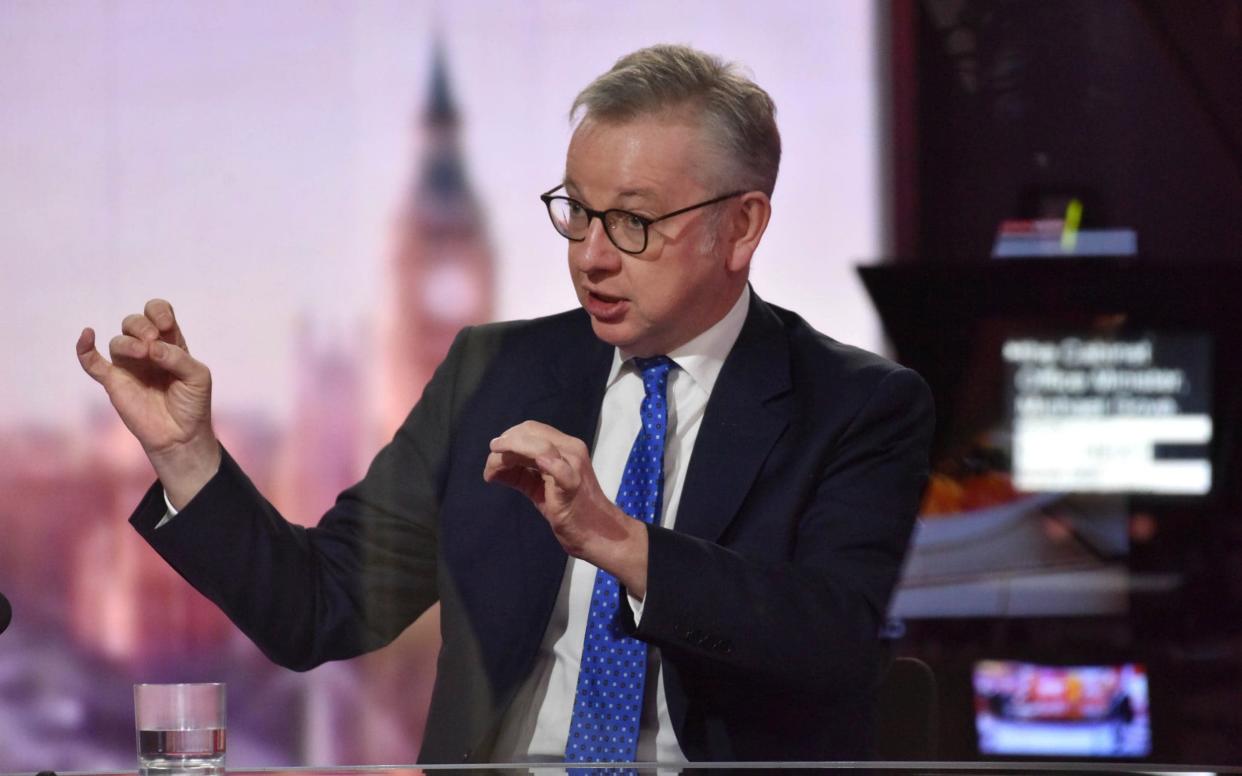Michael Gove says the door remains 'ajar' for post-Brexit trade deal with EU

The door to a trade deal with the EU remains “ajar” Michael Gove has said, as he and Boris Johnson’s chief negotiator prepare for talks with their counterparts on Monday.
Mr Gove said the EU had “drawn stumps” on a deal by insisting that any further compromises must come from Britain, but the two sides will continue talking this week.
Michel Barnier, the EU’s chief negotiator, has cancelled a planned trip to London on Monday, but he and his counterpart Lord Frost are expected to speak by telephone today.
Meanwhile, Mr Gove will hold face to face talks in London with Maros Sefcovic, who co-chairs the EU-UK joint committee dedicated to solving outstanding problems with the EU Withdrawal Agreement.
On Sunday night the Government launched a new “Time Is Running Out” advertising campaign telling businesses to prepare to trade on World Trade Organisation terms at the end of the transition period.
EU diplomatic sources, however, raised hopes of a deal by saying Mr Johnson had created the “political space” for the Brexit trade agreement to be struck by walking away from the talks.
They suggested Mr Johnson’s actions meant that any movement from the EU side could be claimed as a victory by Mr Johnson.
“The Johnson move was expected,” a diplomat from a major trading partner said, “Any move the EU now makes in the direction of Johnson he can celebrate as a victory and reaction to his threat to walk out.”
Meanwhile the Anglican primates of the four nations of the UK said in a joint letter to the Financial Times that the Government’s Internal Market Bill, which will be debated in the House of Lords today, would create a “disastrous precedent” if it was passed.
The Archbishops of Canterbury, York, Wales, Armagh and the Primus of the Scottish Episcopal Church said the Bill, which would enable ministers to break the terms of the EU Withdrawal Agreement, had “enormous moral, as well as political and legal consequences”.
They wrote: “If carefully negotiated terms are not honoured and laws can be ‘legally’ broken, on what foundations does our democracy stand?”
Mr Barnier had planned to be in London on Monday but Lord Frost told him not to come unless he was prepared to bring a “fundamental” change of approach to the negotiations.
Asked if trade talks could resume Mr Gove said: “We're certainly not saying that if they do change their position we can't talk to them."
Brussels sources said there was a long history in EU negotiations of a walkout before a deal is clinched. They said significant compromises were already in the offing.
“The move was so transparant not even the markets bought it,” one diplomat said after the pound shrugged off Mr Johnson’s threat.
But UK Government sources suggested the EU had “misunderstood” Britain’s willingness to walk away from talks and trade on WTO terms because Brussels “isn’t used to negotiations that have a deadline”.
One source said: “They didn’t think we were serious about walking away. We are, and that might focus minds among EU leaders.”


